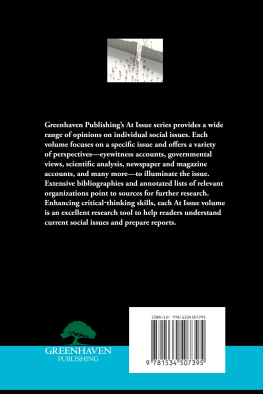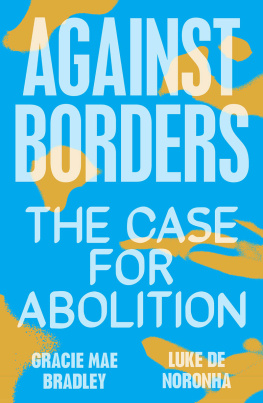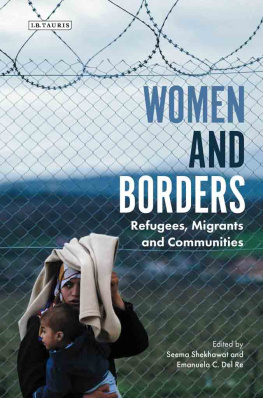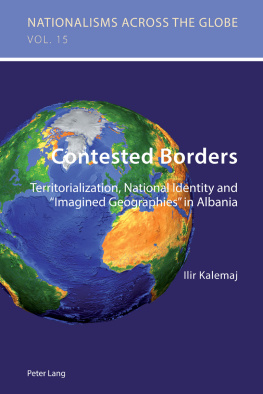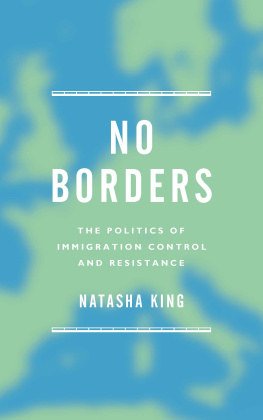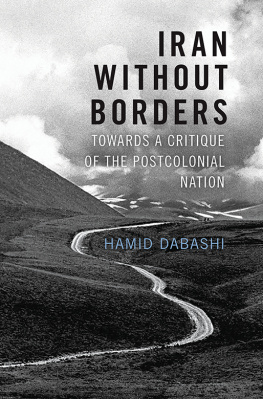About the Contributors
Ian Barnard is professor of rhetoric and composition in the English Department at Chapman University. They also direct Chapmans LGBTQ studies program and they are affiliated with the University Honors Program. They grew up in Johannesburg, South Africa, where they completed their BA and BA Honors degrees at the University of the Witwatersrand. Barnard earned their MA and PhD degrees in the United States, at San Diego State University and the University of California, San Diego, respectively. They live in downtown Los Angeles, one of the most wonderfully cosmopolitan cities in the world. Their primary areas of research and teaching are rhetoric and composition, and queer studies; in addition, they have interests in critical theory, film, feminist theory, cultural studies, and African literature. Barnards the author of two books, Queer Race: Cultural Interventions in the Racial Politics of Queer Theory, and Upsetting Composition Commonplaces, and is now at work on a new book, tentatively titled Sex Panics Rhetorics: Queer Interventions. Prior to coming to Chapman, they were professor of English at California State University, Northridge, where they taught for ten years, serving for two of those years as chair of the University Writing Council. They have also previously held positions at USC, California State University Chico, and The Ohio State University.
Juan Jos Bustamante is associate professor of sociology at the University of Arkansas. He has a joint appointment between the Department of Sociology and Criminal Justice and the Latin American and Latino Studies Program. He received his PhD in sociology from Michigan State University, and an MS and a Bachelor of Arts in sociology from the University of Texas Pan American. Born in Mexico City and raised in both Mexico and Texas, his research interests include Latina/o communities, international immigration, and qualitative research methods. He is the author of Transnational Struggles: Public Policy, Gender, and Family Life on the Texas-Mexico Border (2013). His work focuses on developing an interpretive approach to the study of communities within the US-Mexico border area as part of a cohesive, transnational social field. Dr. Bustamantes current work collecting ethnographic data from Latina/os and migrants living in the Northwest Arkansas (NWA) area extends his research on racially and community structured components of migration beyond the physical limits of the US-Mexico border. He is interested in studying and documenting the impact of Latino population growth, distribution, and age-structure on local educational, labor, housing, and public safety services, as well examining the strategies larger social institutions have adopted to address the demographic shift in the area. In an effort to assess and document the far-reaching changes set in motion by this historic shift, and with the support of competitive, intra-mural, small grants, Dr. Bustamante has created a Life History Archive Initiative entitled The Southern Latino and Migrant Voices Project (SLMVP). This collection of photographs, fieldnotes, and interviews is based on ethnographic work and student and visual exploration data. It is a community-based effort, which goal is the preservation of Southern Latino and migrant life histories.
Ryan Ashley Caldwell is associate professor of sociology at Soka University of America. Her research and teaching interests include cultural studies and social theory, gender and sexuality, feminist and queer theory, identity studies, and philosophical studies of power. Dr. Caldwell has authored, Fallgirls! Gender and The Framing of Torture at Abu Ghraib (2012). Among others, she has contributed to Cultural Sociology (2008), The Handbook of Forensic Sociology and Psychology (2013), and The Routledge Handbook of War and Society (2011). Identifying as a queer femme, Ryan is a member of The Sisters of Perpetual Indulgence, and within this non-profit group is identified as Sister Electra-Complex. Ryans pronouns are she/her or they/them, and she believes that teaching takes place not only in classrooms, but through participating with others at the community level.
Robert F. Carley is assistant professor of international studies at Texas A&M University, College Station. He is an editor of Lateral: Journal of the Cultural Studies Association and is co-coordinator of The Union for Democratic Communications. Dr. Carleys most recent books are Culture and Tactics: Gramsci, Race, and The Politics of Practice (2019) and Autonomy, Refusal, and The Black Bloc: Positioning Class in Critical and Radical Theory (Rowman & Littlefield International, 2019). He has also recently contributed to The Sage Handbook of Critical Pedagogy and published research in Theory in Action, Sociological Focus, and The Journal of Historical Sociology. Dr. Carley received The North Central Sociological Associations 2017 Scholarly Achievement Award for his article Ideological Contention: Antonio Gramsci and the Connection between Race and Social Movement Mobilization in Early 20th Century Italy.
Eric Gamino is assistant professor of criminology and justice studies at California State University, Northridge. He received his PhD in sociology from Texas A&M University. His research interests include policing and police-community relations; racial and ethnic relations; critical criminology; immigration and crime; US-Mexico border region; and qualitative research methods. Dr. Gaminos research interest focuses on minorities experiences with the criminal justice system. He is a former police officer. His commitment to understanding the link between police abuses and community trust is driven by an intellectual curiosity about racial and ethnic relations with police at the community level, along US-Mexico border region and beyond. Because his research addresses police-community issues, his hope is to inspire others as well as advocate for social justice within a relationship frame between police officers and the general public.
Jesus A. Garcia earned his doctoral degree from Texas A&M in 2011 in sociology with specializations in the study of race/ethnic relations, sociological theory, and cultural studies. Research publications have investigated cross border crime and deviance along the South Texas/Mexico border, sociological theory, race/ethnic relations, social integration, critical theory, and modernity.
B. Garrick Harden received his bachelors degrees in history, psychology, and sociology with a sub-focus in philosophy from Augusta State University in Augusta, Georgia. He then attended graduate school at Texas A&M University in College Station where he earned his masters and doctorate in sociology. He was co-editor for Co-opting Culture and David Riesmans Unpublished Writings and Continuing Legacy and sits on the editorial board of Theory in Action. He has been teaching at the collegiate level for over ten years and has published on a variety of subjects including social theory, cultural studies, gender and sexuality, and race and ethnicity. He has been teaching at Lamar University since fall of 2009.
Hilario Molina II is assistant professor of sociology and research associate of MARTI at Indiana University of Pennsylvania. He earned his doctoral degree in sociology from Texas A&M University. His interests include social demography, critical race theory, and mixed-method researchthat emphasizes in social-identity, health, marginalization and economic factors that impact the Latinx community.
G. Dillon Nicholson is a former student of B. Garrick Harden and recent graduate of Lamar University. His interests are in Marxian sociology and the sociology of race and ethnicity. A student activist, Dillon plans to pursue his interests to the doctorate level. He is currently working on his masters degree from Columbia University.



